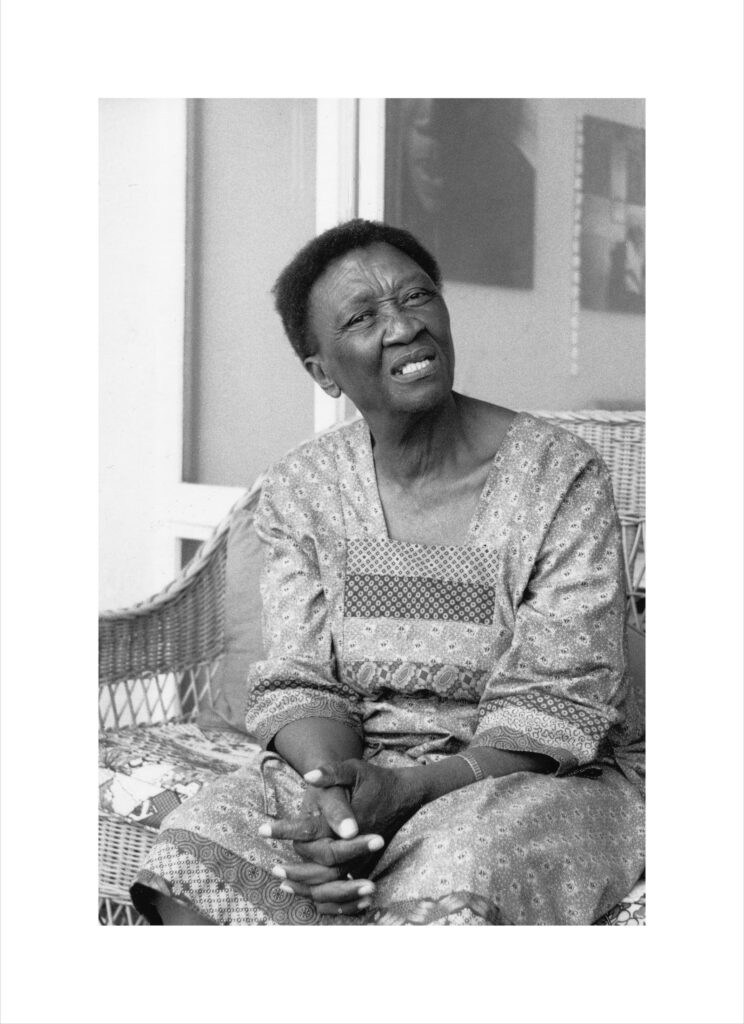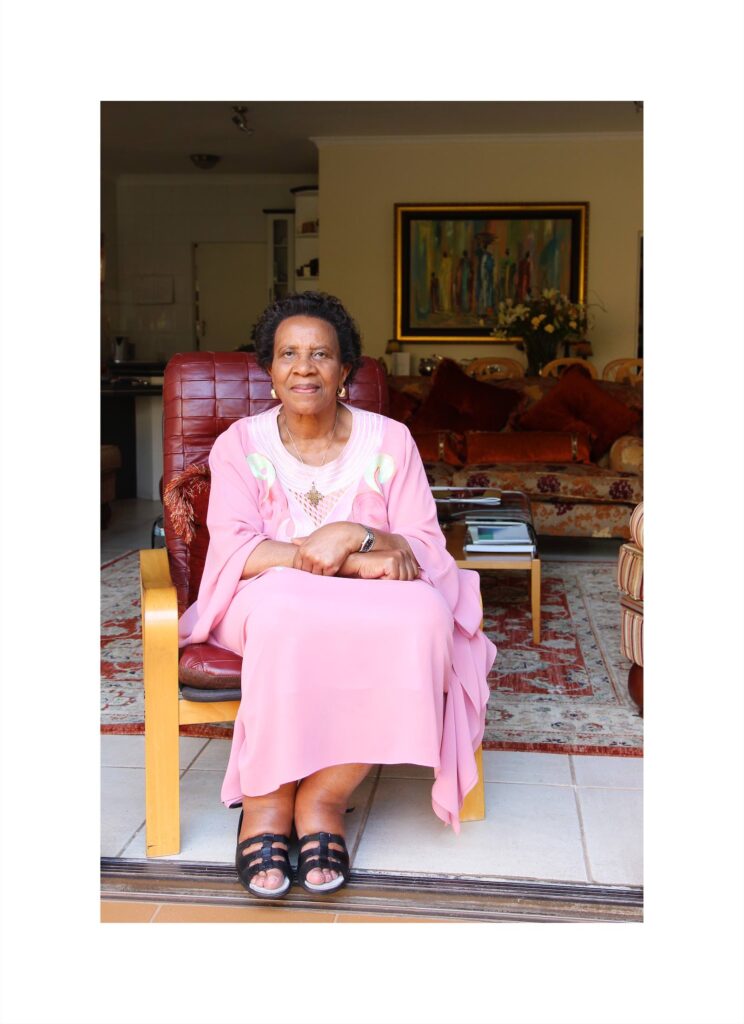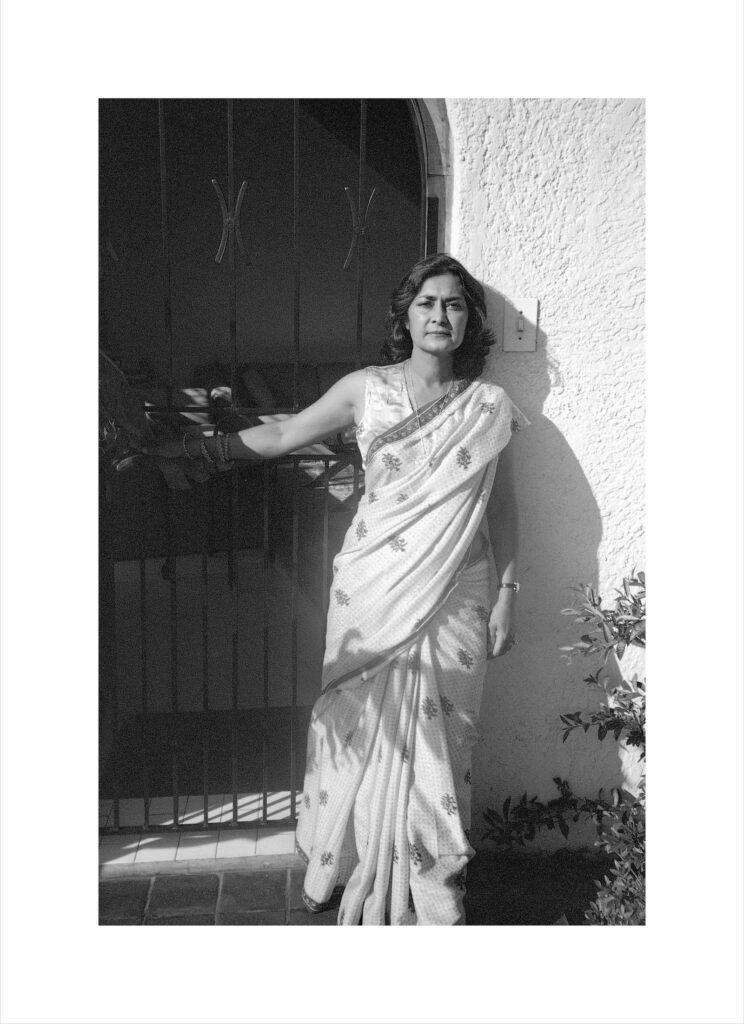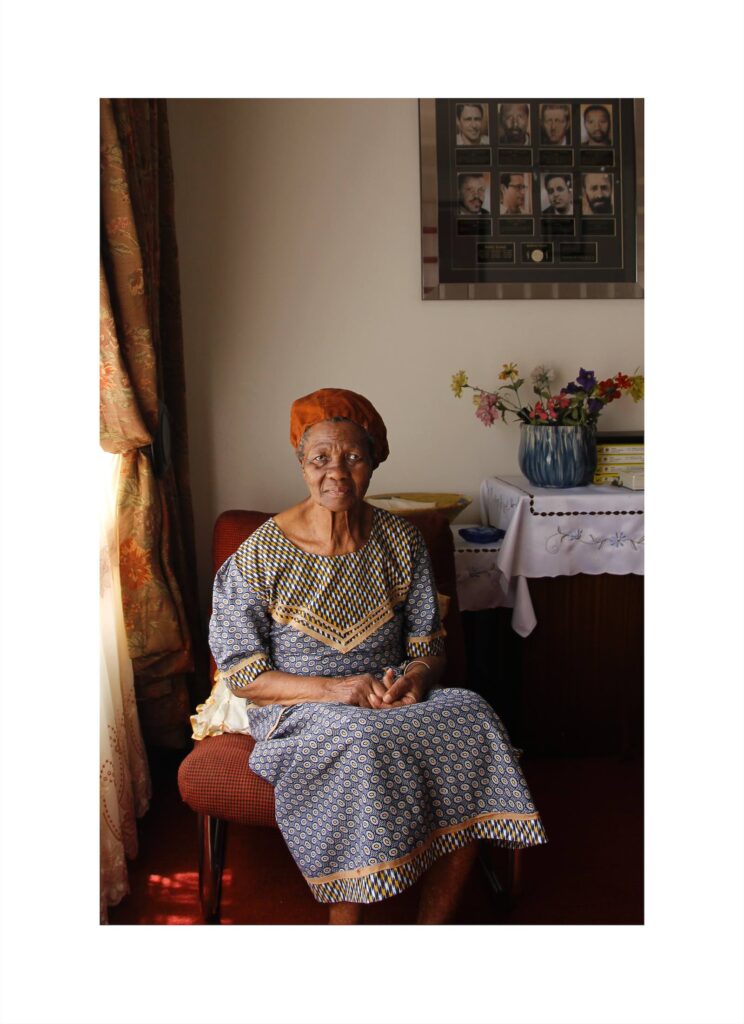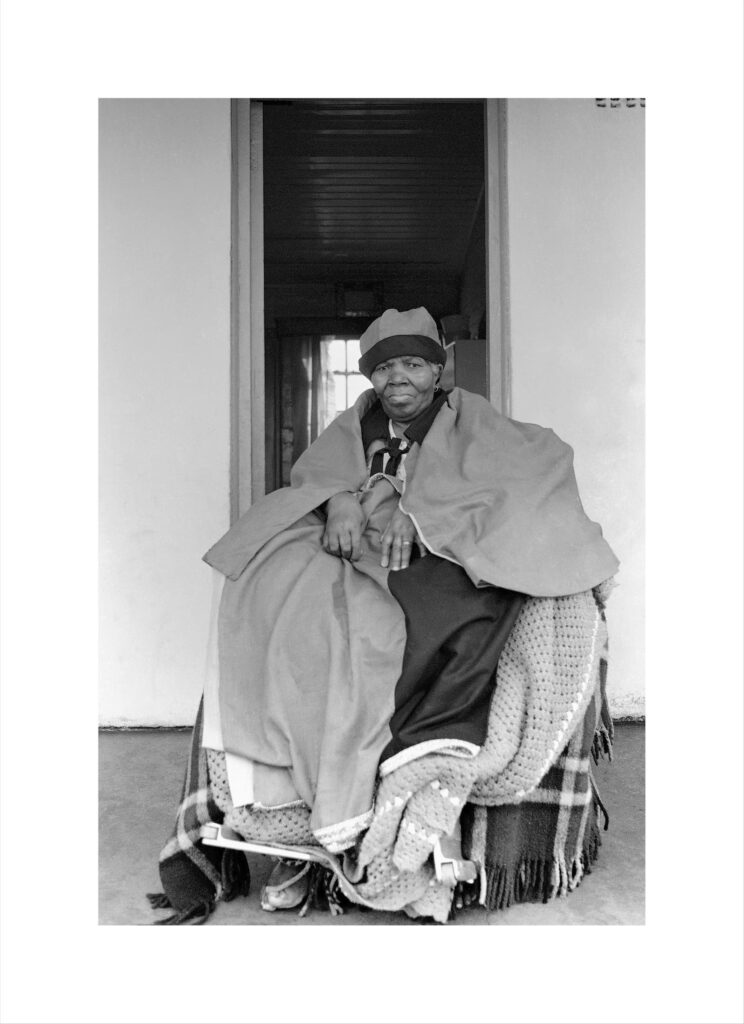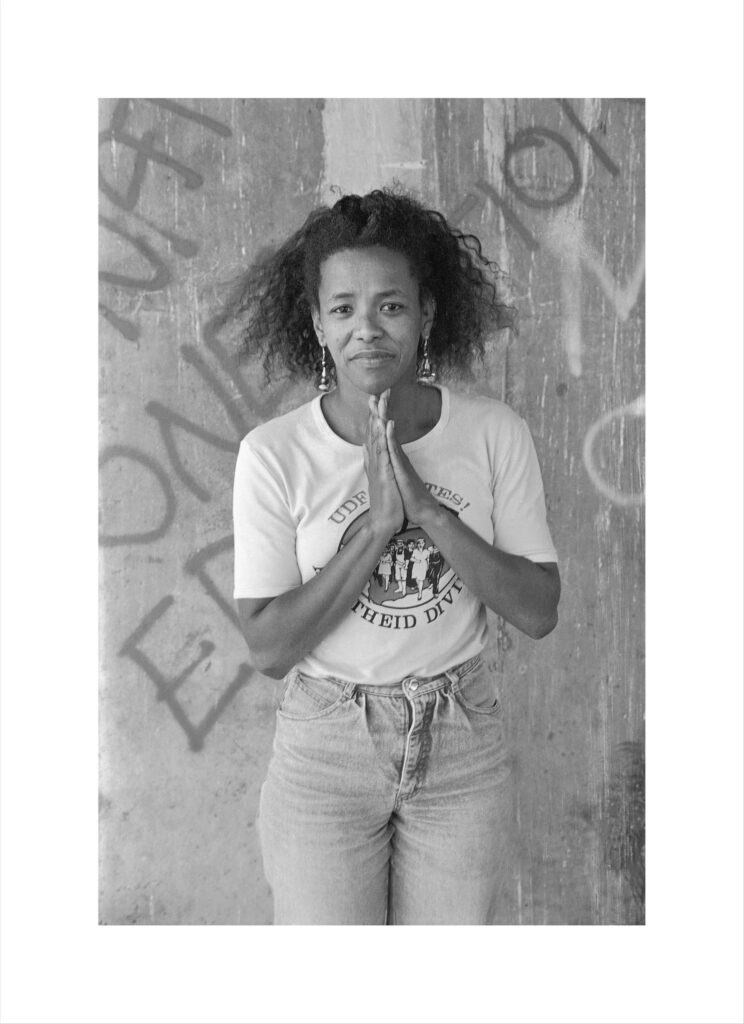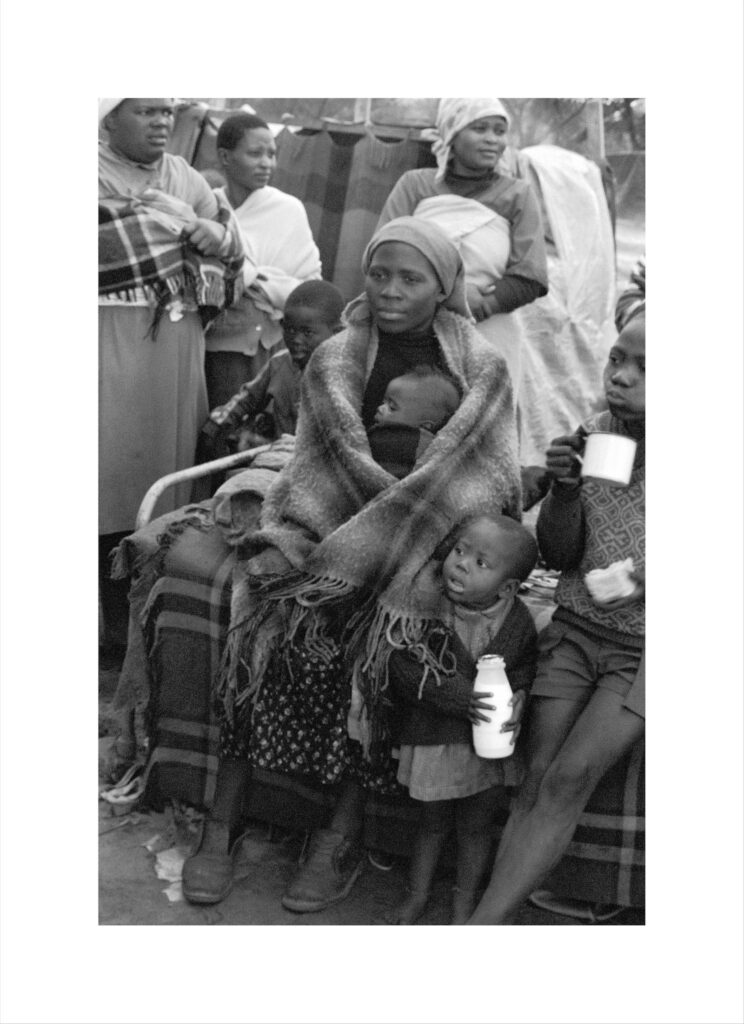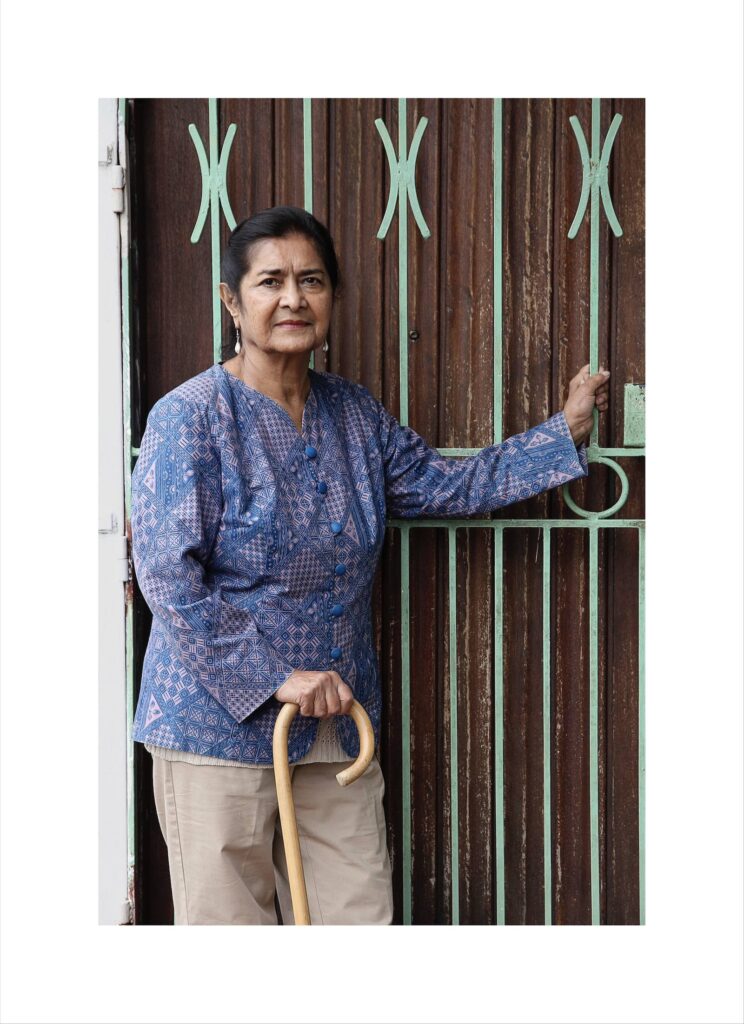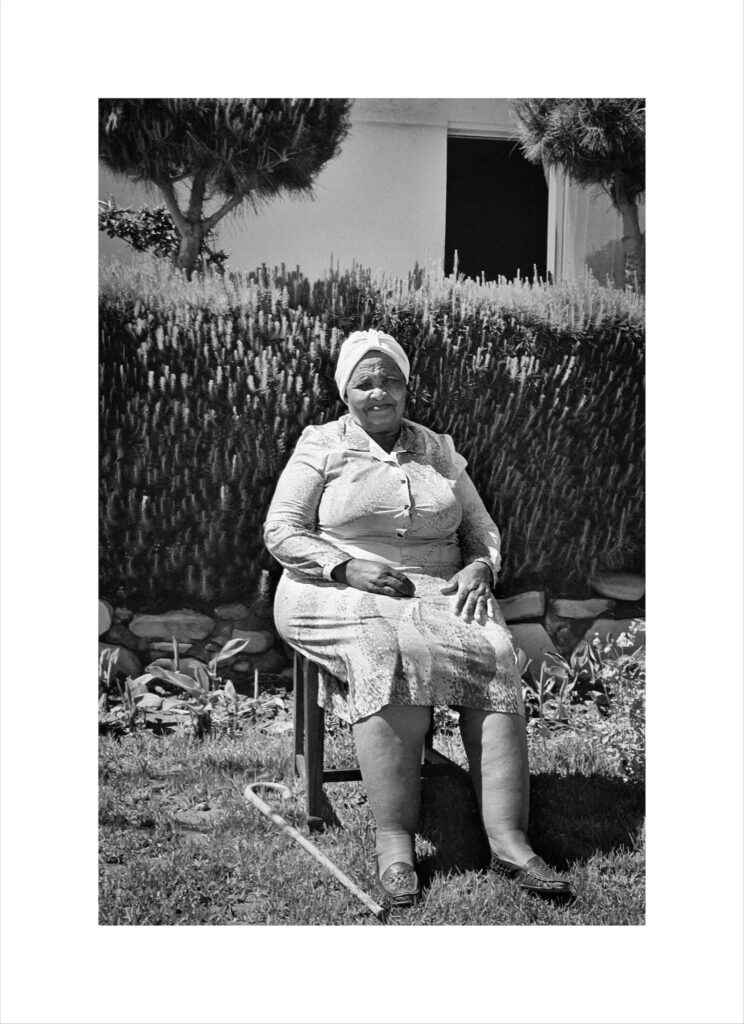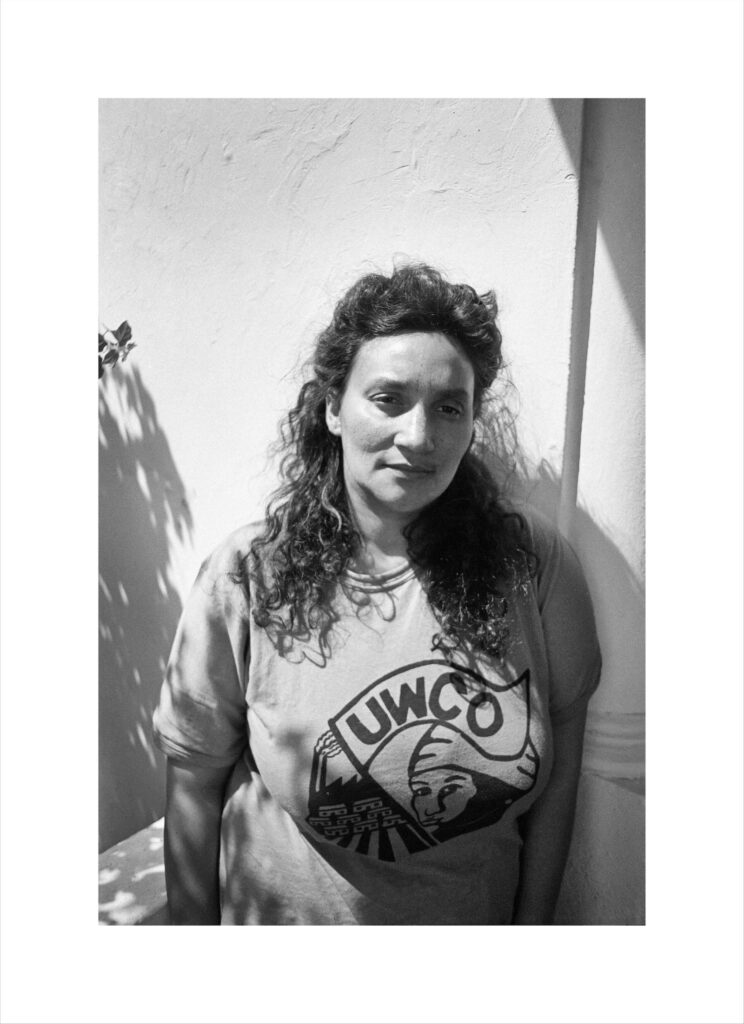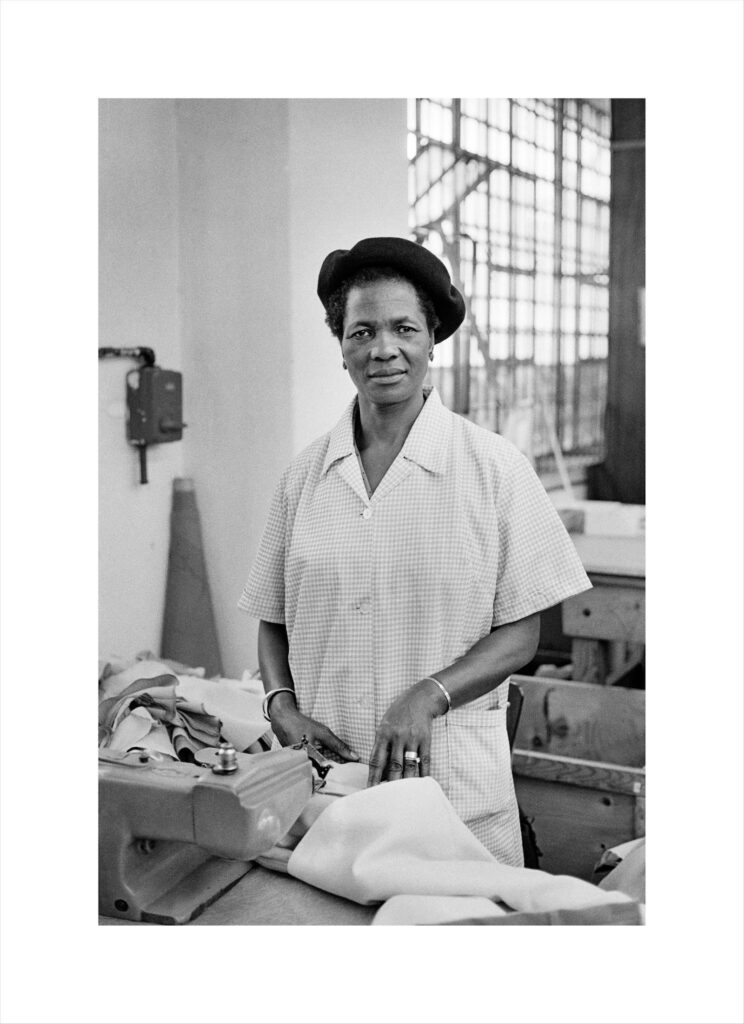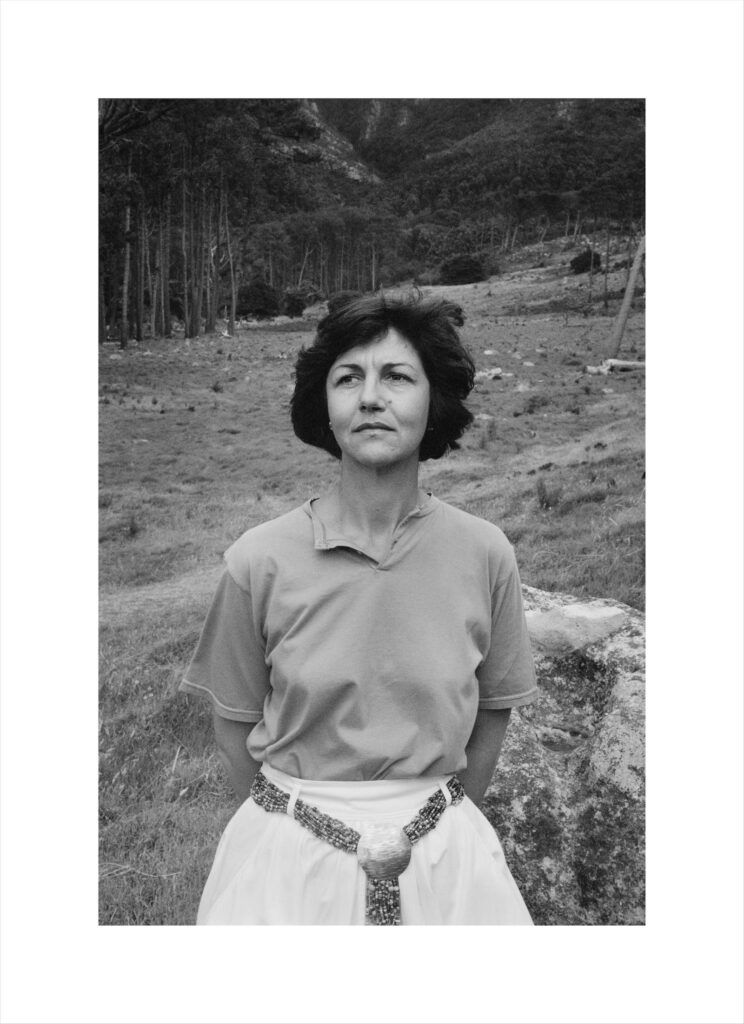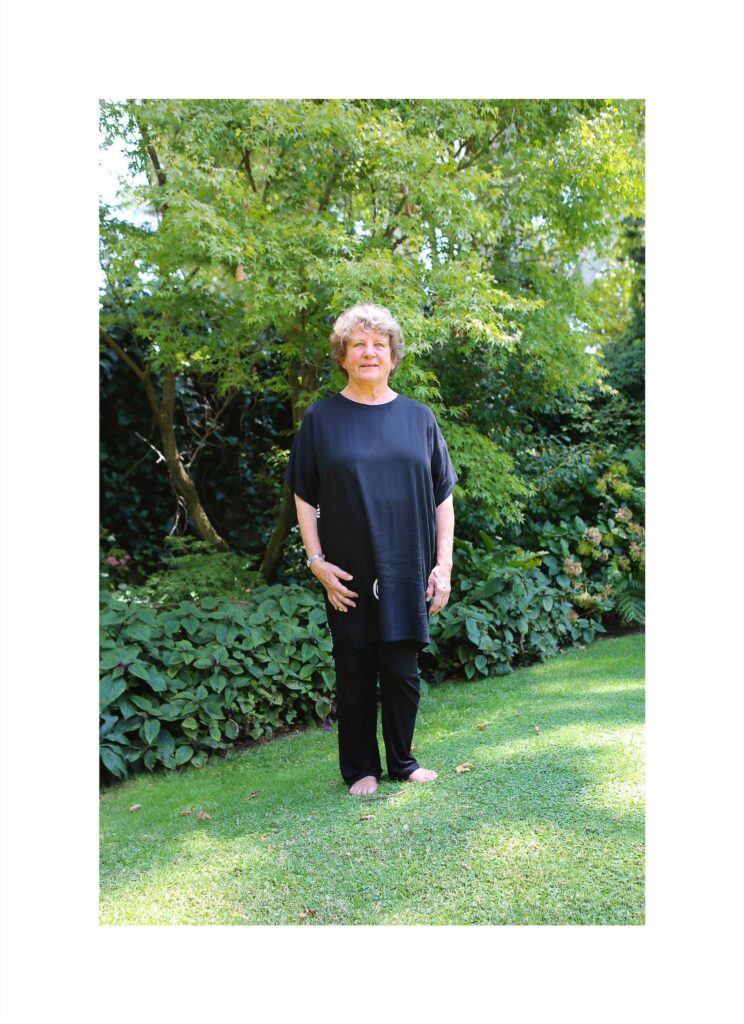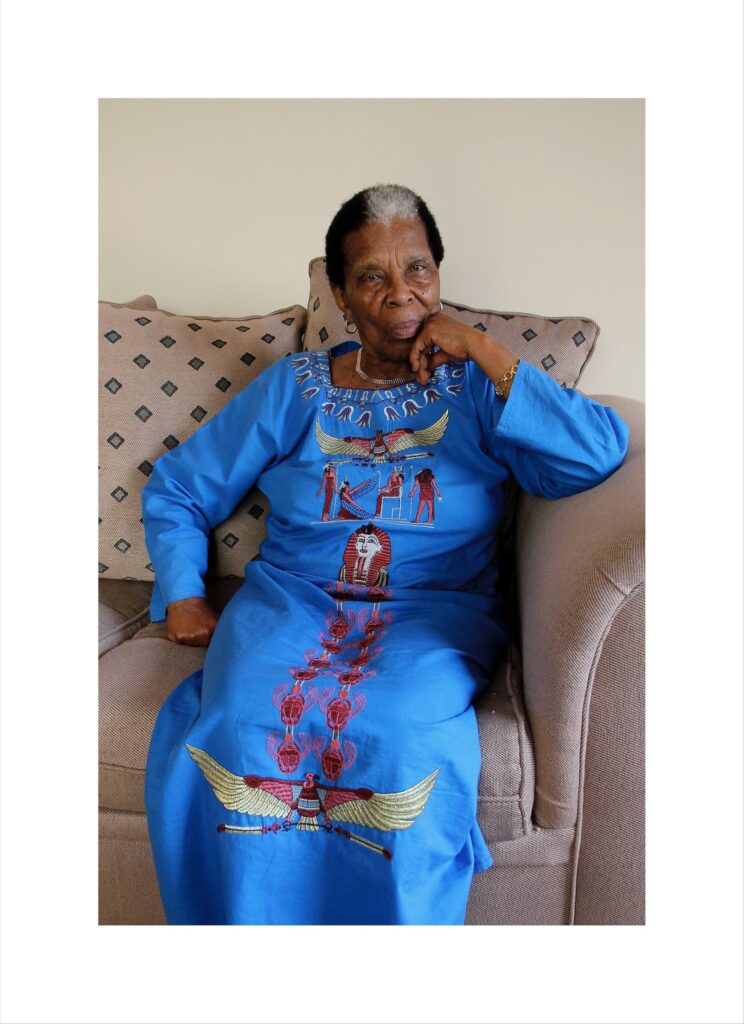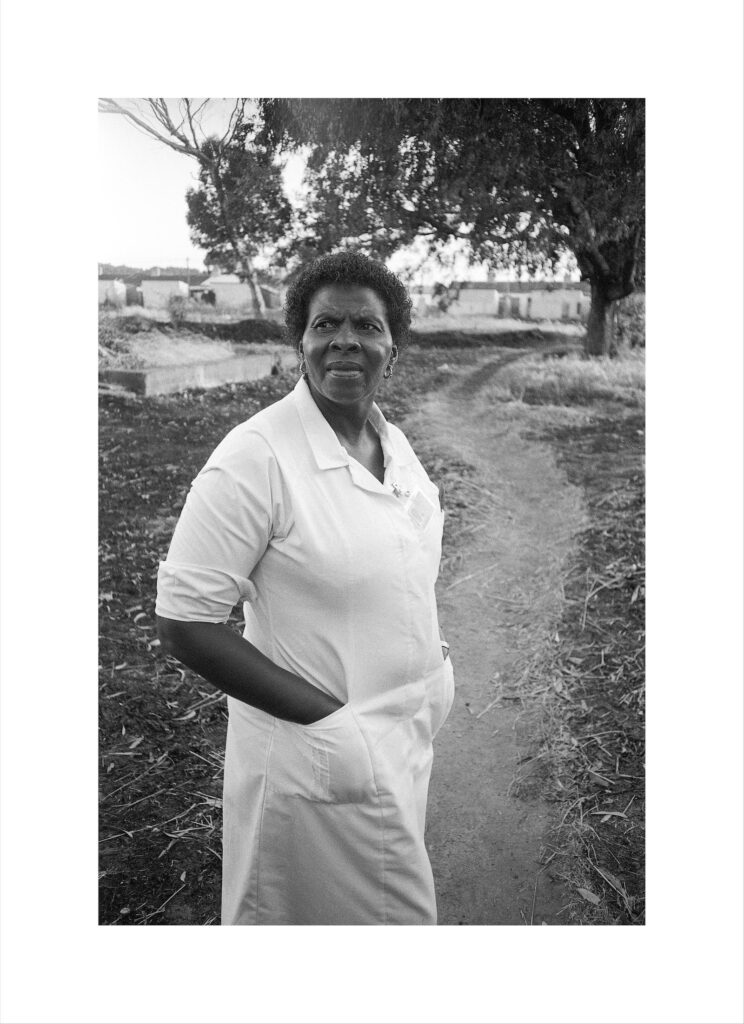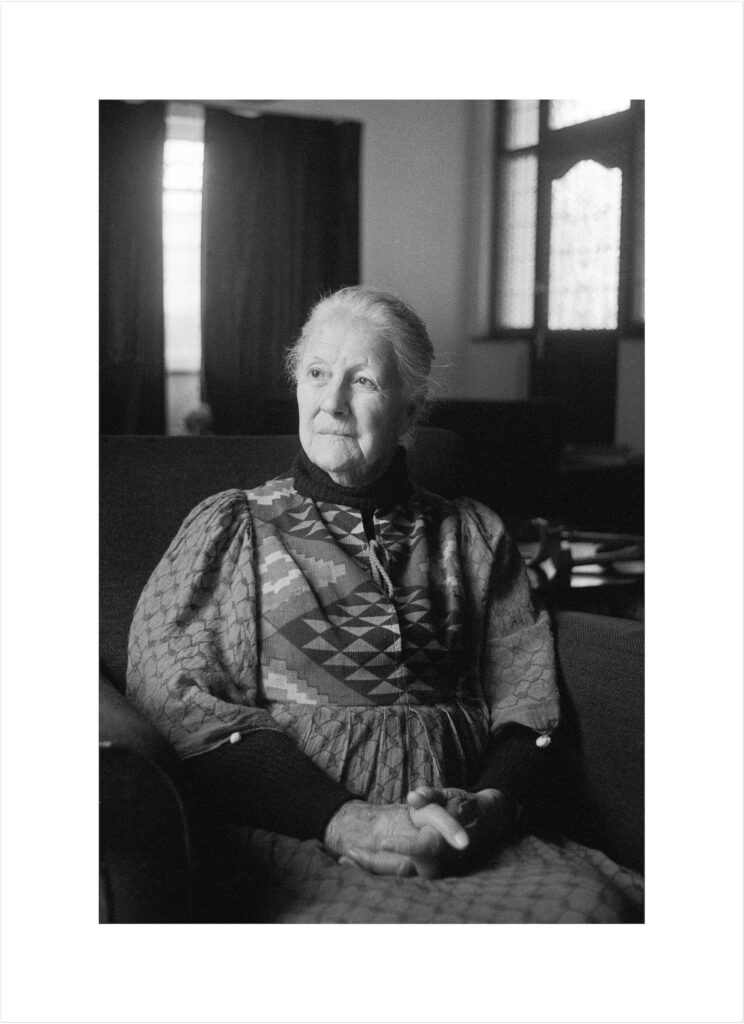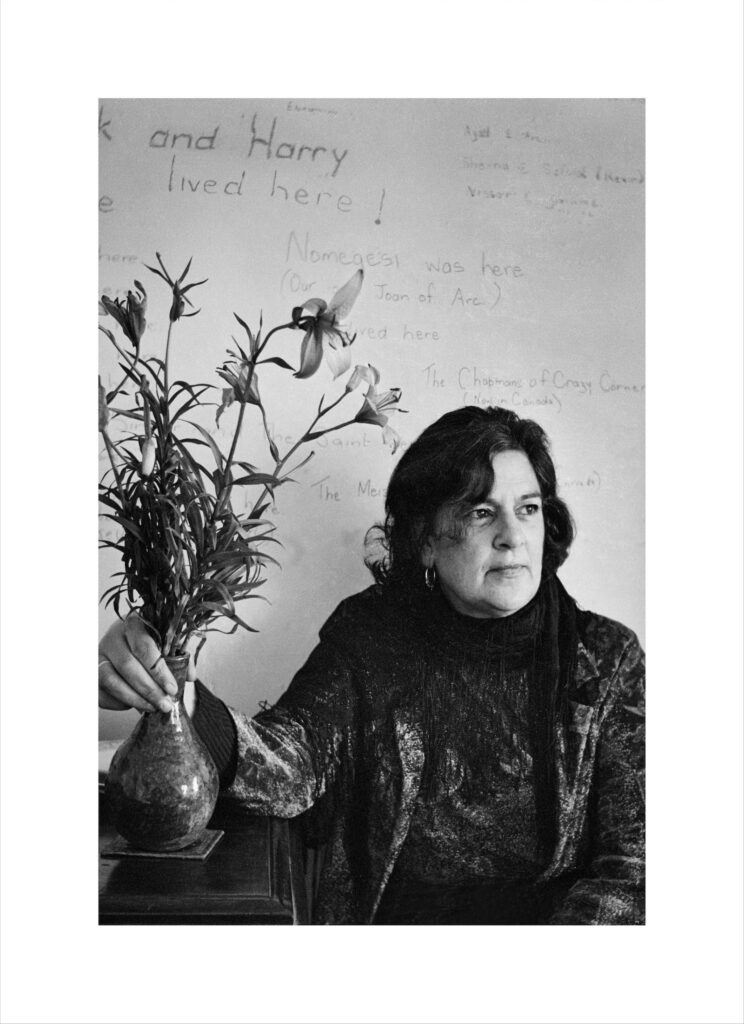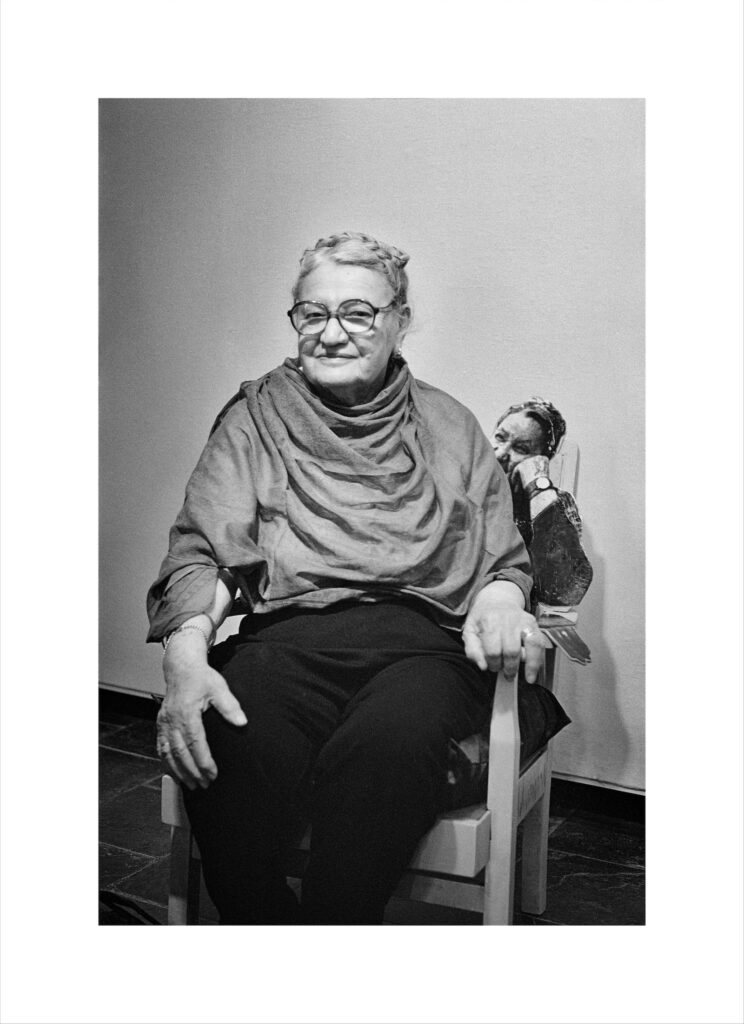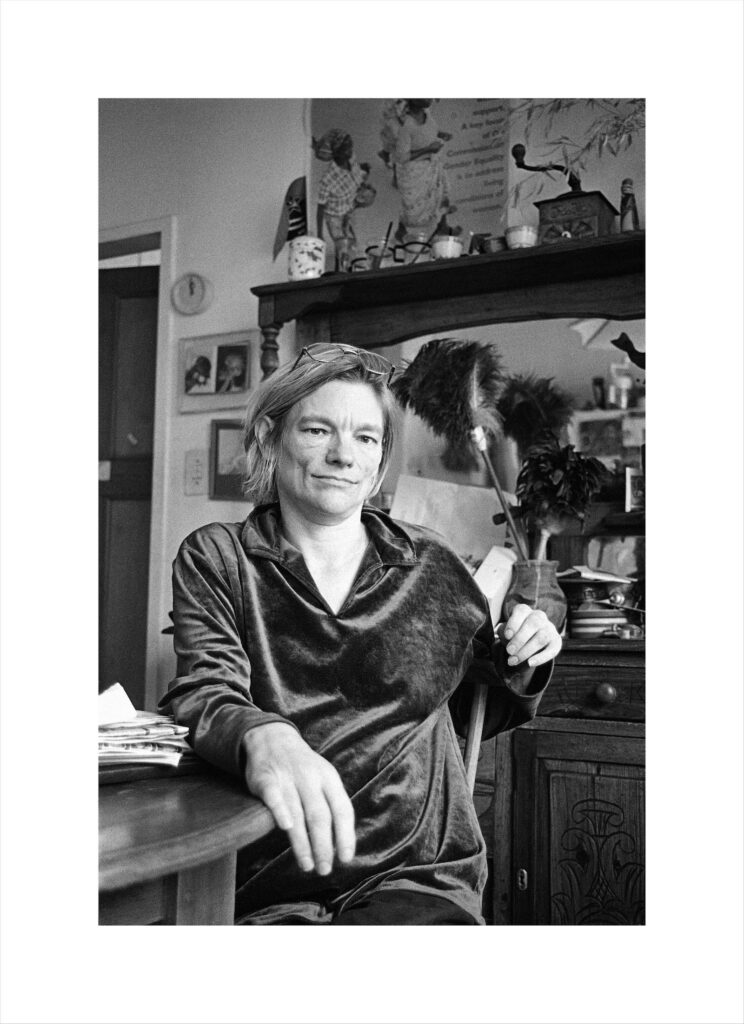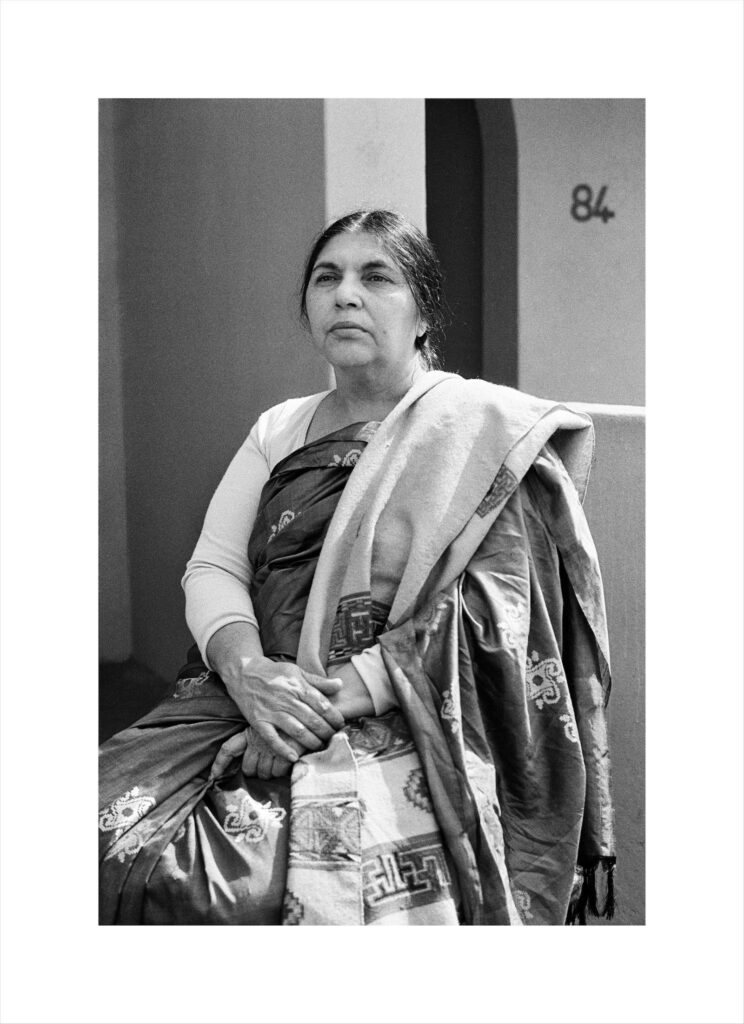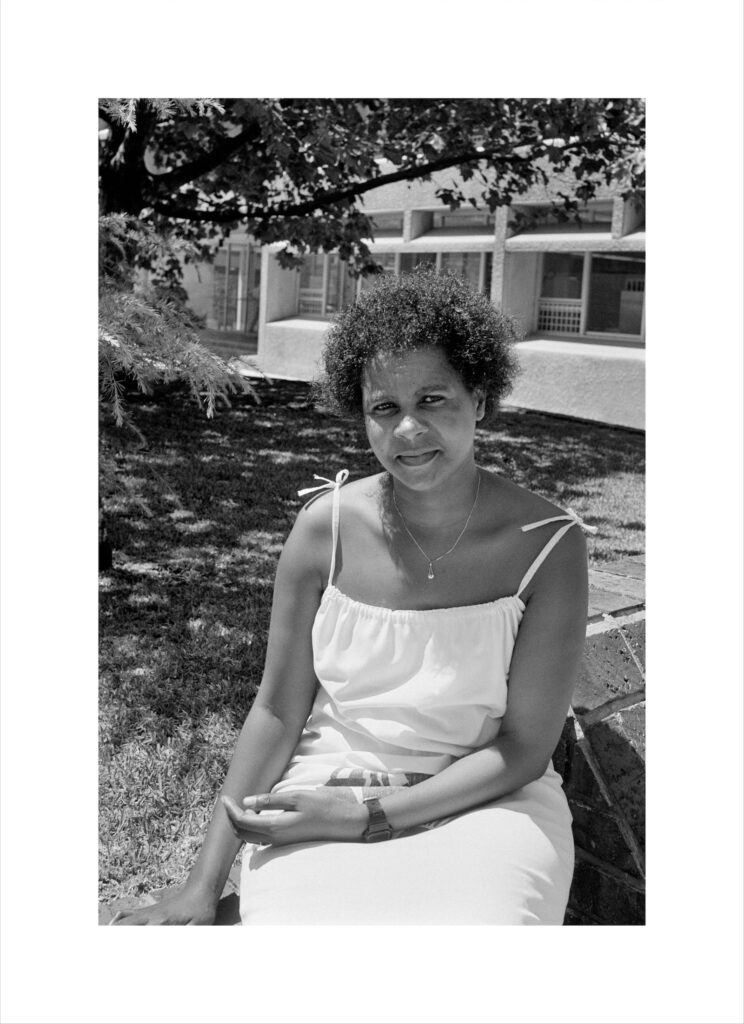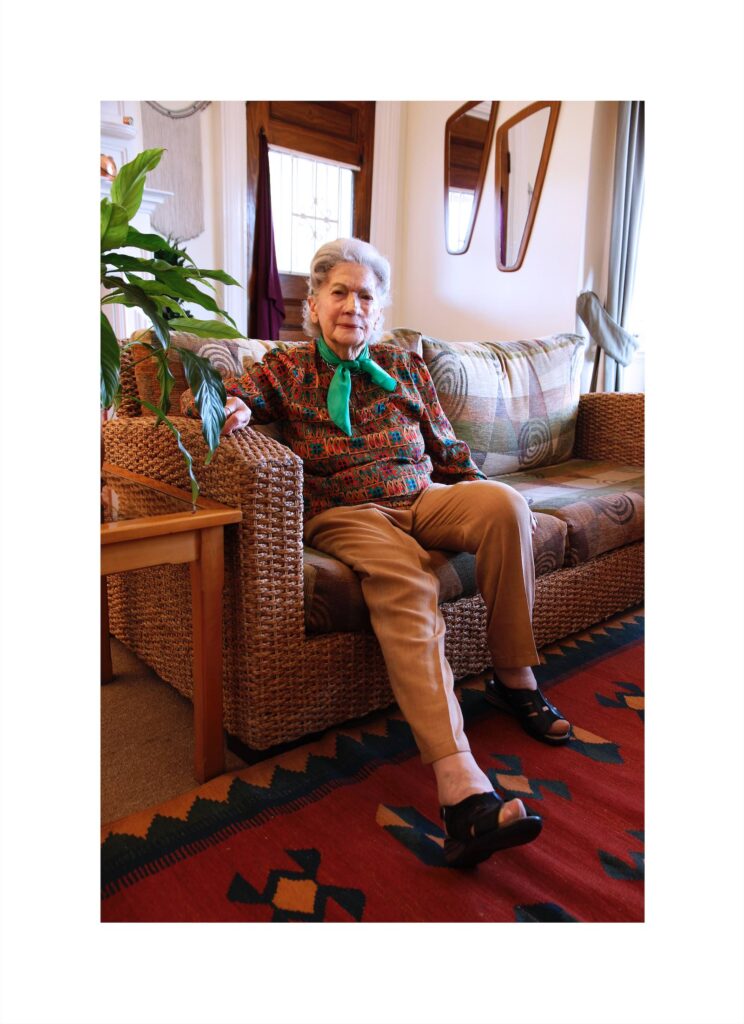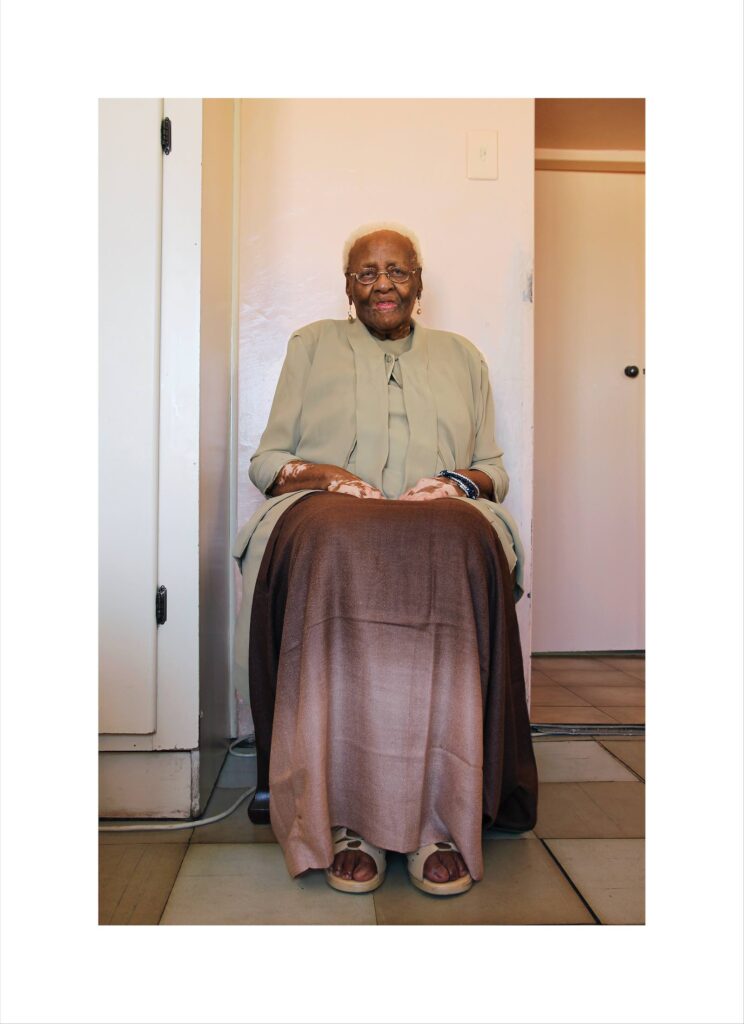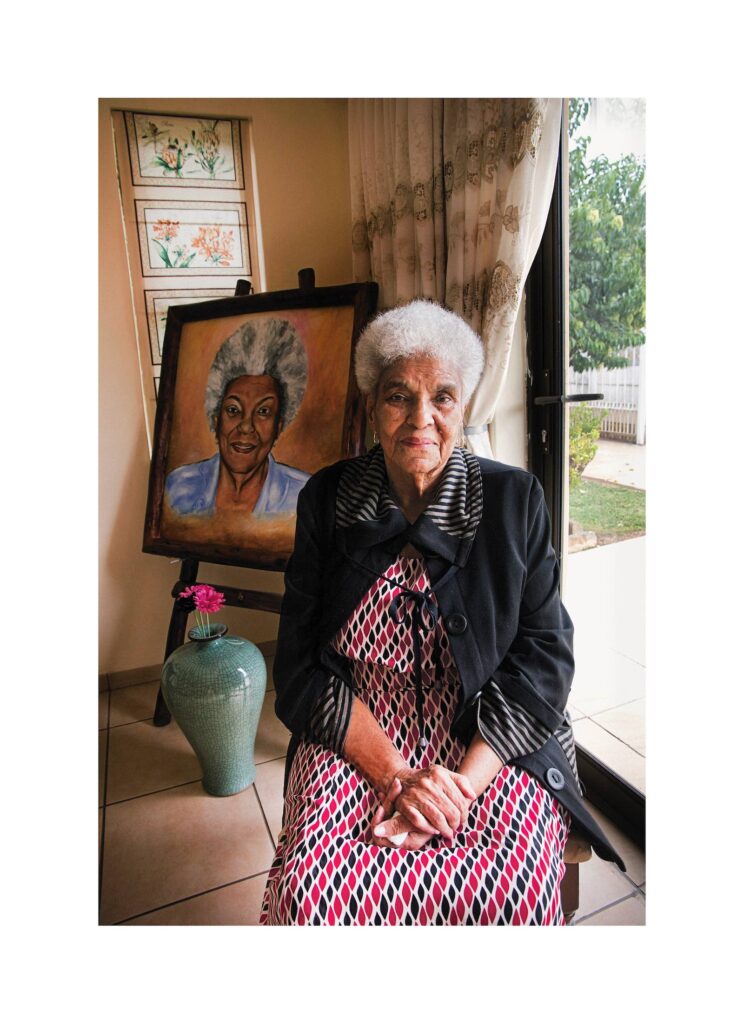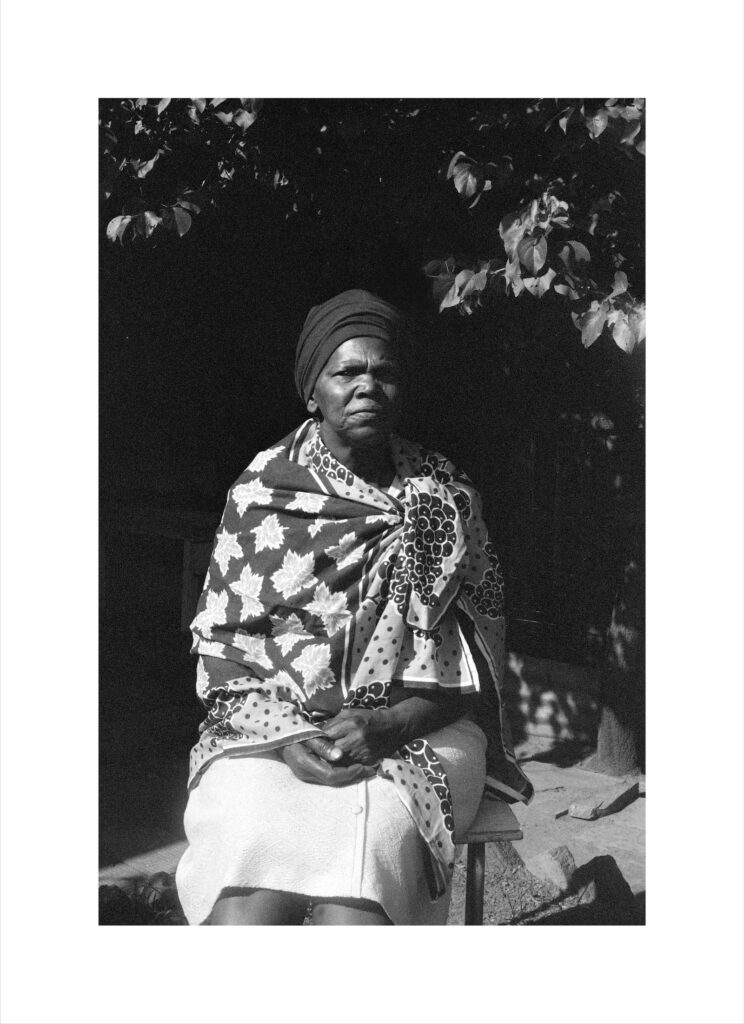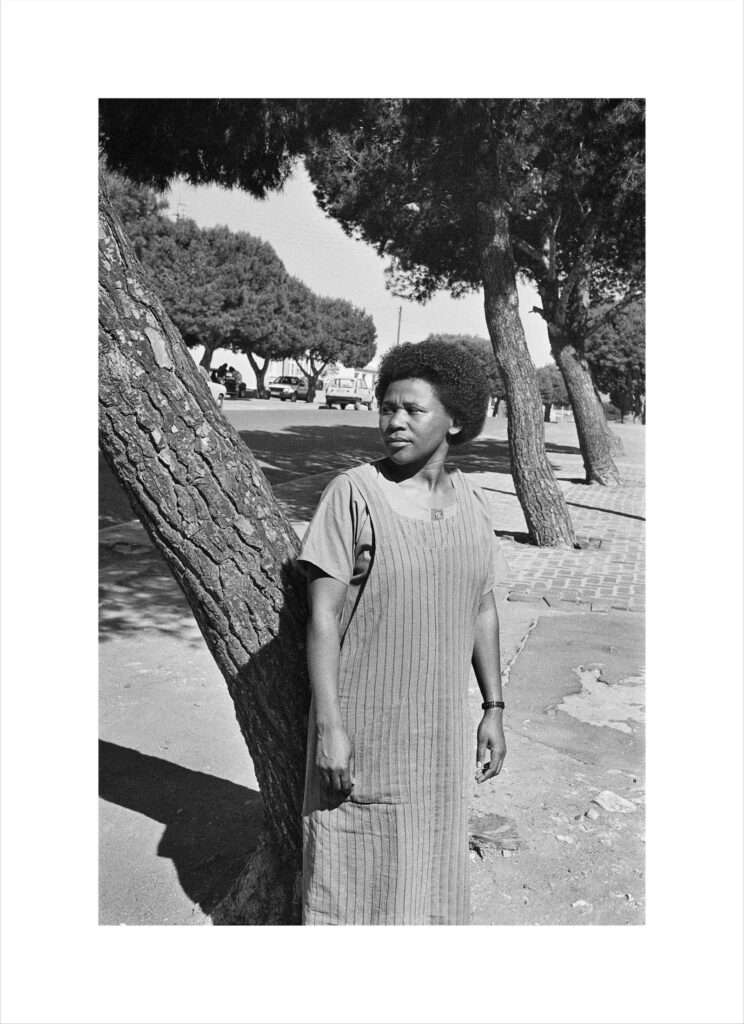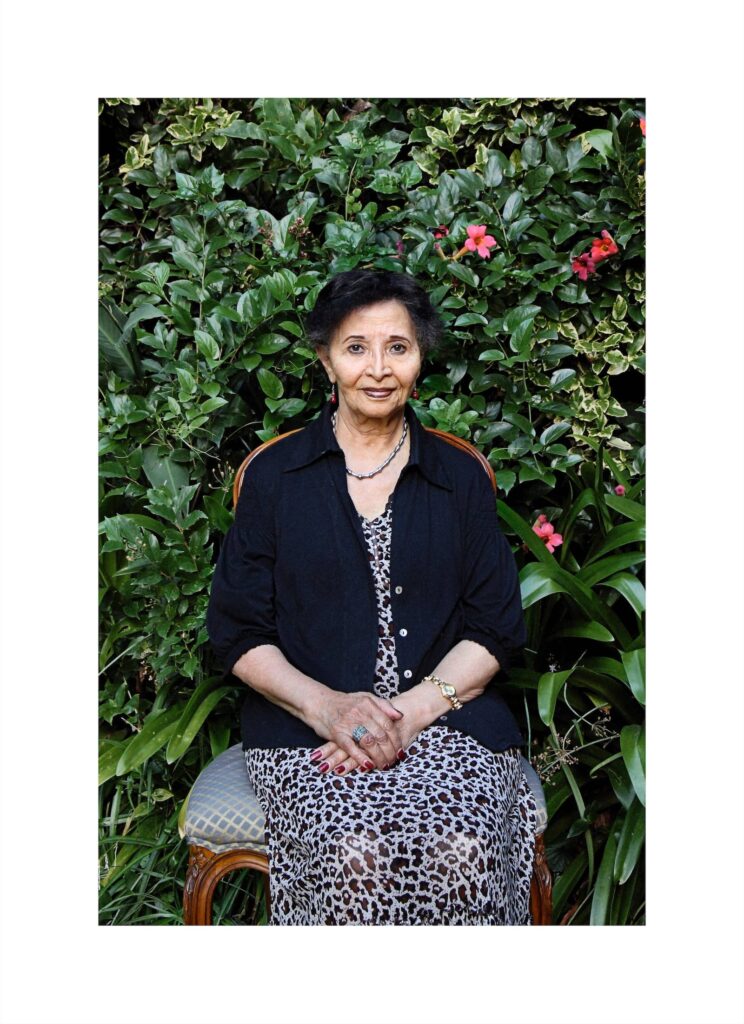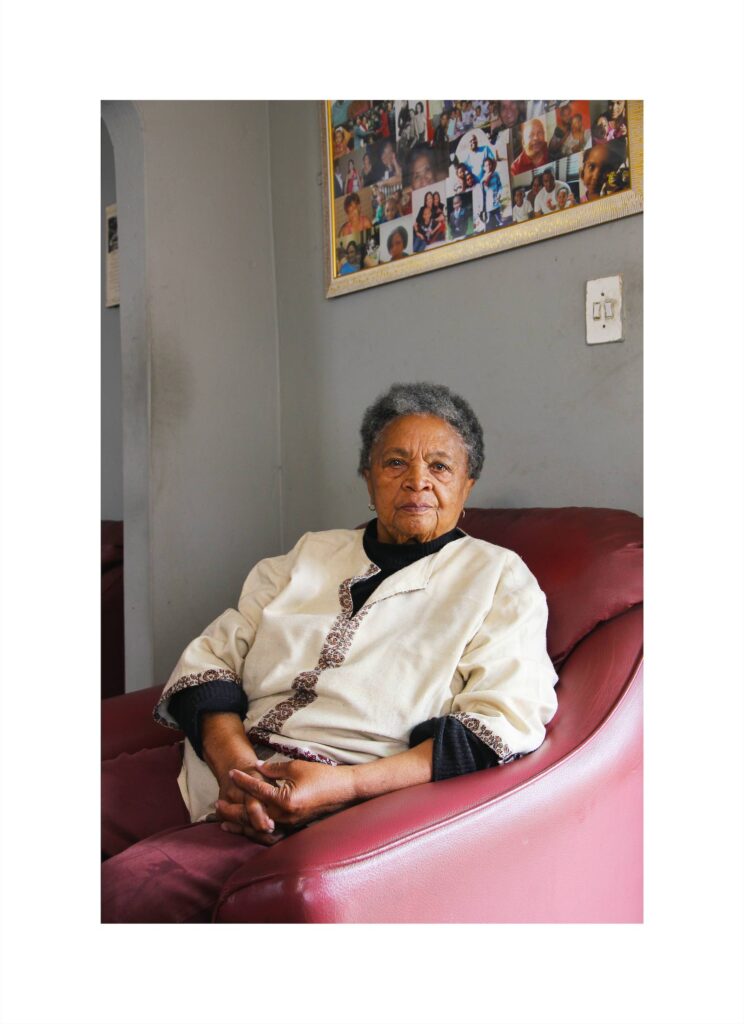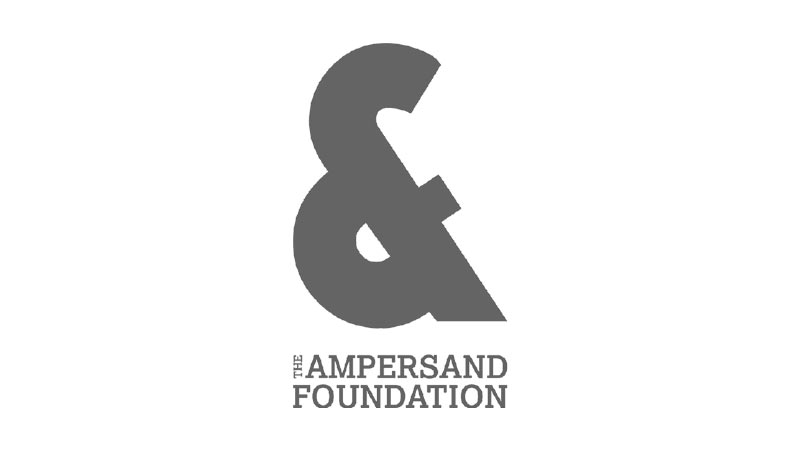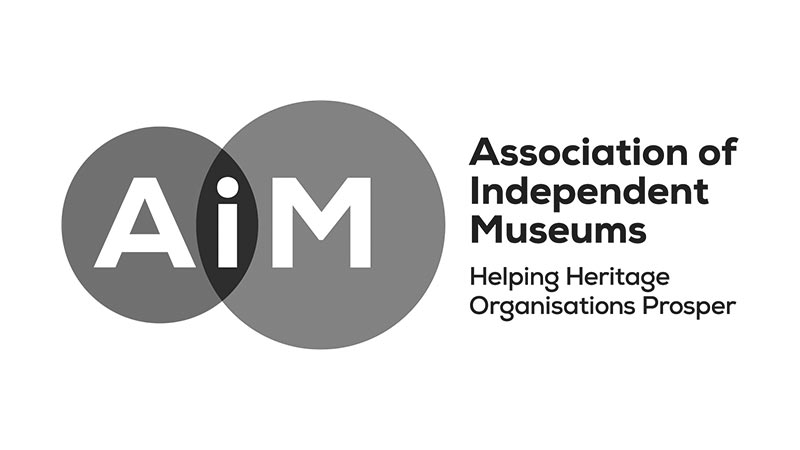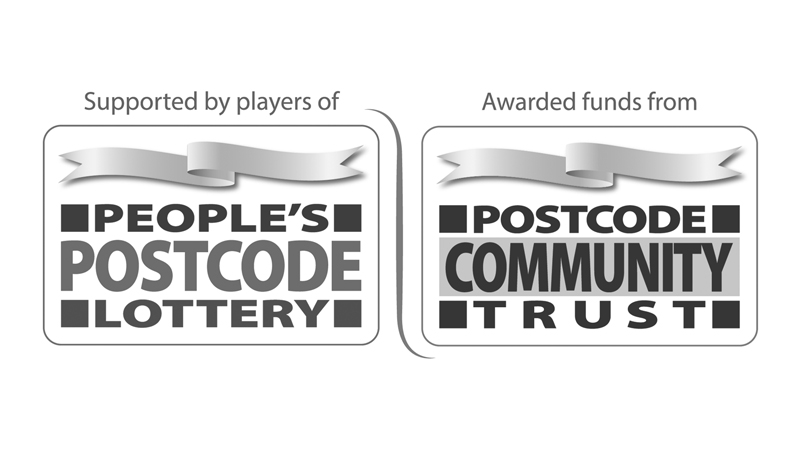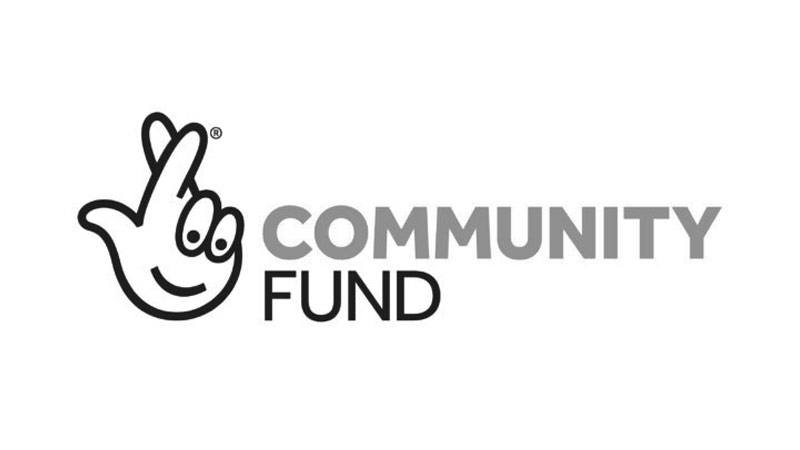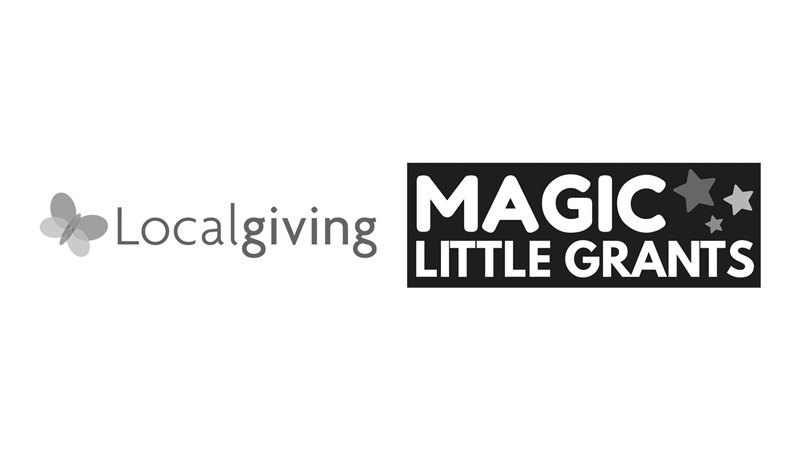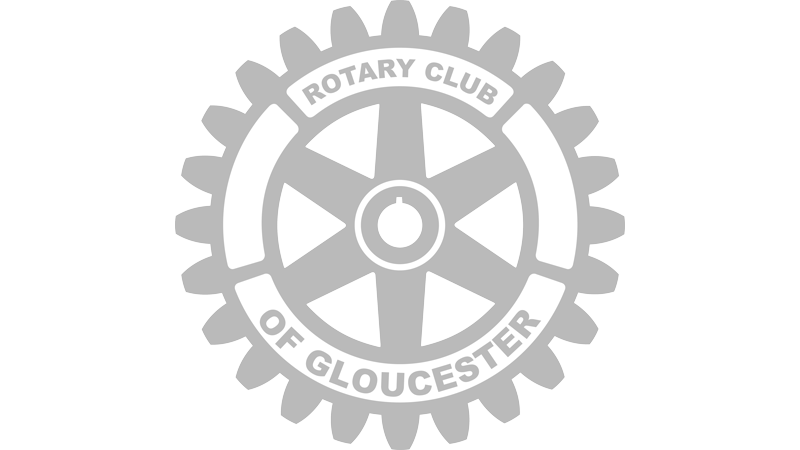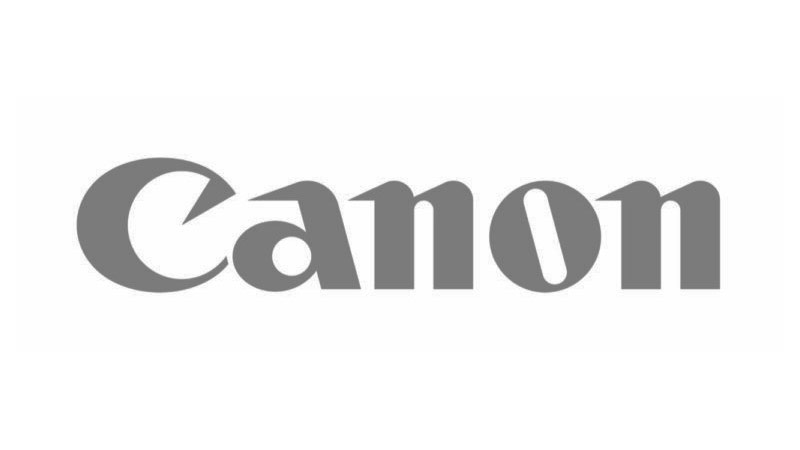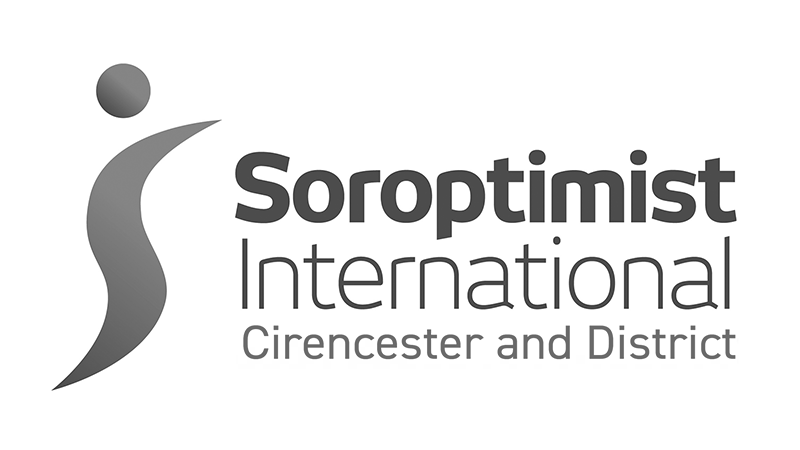All images : Archival inks on archival paper
All Our Mothers
at Goodman Gallery, London, until 9th July 2022
“[…] I am interested in people, in their stories, and in the exact words they use to describe their memories, experiences and expectations.” – Sue Williamson
People – their history, their identity, and the stories they tell – are at the heart of Sue Williamson’s practice. Part of the generation of South African artists and photographers whose work challenged the apartheid government in the 70s and 80s, her work honours the courageous women who underpinned the struggle for liberation.
Now, for the first time in the UK, Goodman Gallery London is exhibiting All Our Mothers, a collection of Sue’s photographic portraits. Spanning four decades, the work offers an inspiring overview of the undervalued role of women in South African history.
Sue does not classify herself as a photographer outright; All Our Mothers partially comprises images taken in preparation for other works – such as Sue’s seminal series A Few South Africans, etched and screen-printed portraits of women deeply involved in activism.
Nevertheless, All Our Mothers is a vital collection which maintains Sue’s deftly insightful approach to storytelling. Many of the women are photographed in their own homes, or in significant locations; politician and activist Amina Cachalia, for example, is photographed at the gate of her house in Luttig Street, Johannesburg, the site of frequent meetings of the top leadership of the African National Congress (ANC) after the release of Nelson Mandela.
The passage of time is a key consideration of the work. Some of the women featured, such as Amina, were photographed multiple times, with decades between each image. The juxtaposition of black and white photography and colour images emphasises this interval.
According to Sue, these images are a means of stimulating dialogue between generations; the portraits of Amina hail from the video installation There’s something I must tell you (2013), which features six conversations between veteran women activists and their ‘granddaughters’.
In creating All Our Mothers, Sue worked with a diversity of key figures – the distinguished Dr Brigalia Bam; the 101 year old Rebecca Kotane; Carollne Motsoaledi, widow of activist Elias Motsoaledi; Ilse Fischer, activist daughter of Afrikaner lawyer Bram Fischer; and liberation movement heroine Vesta Smith, to name a few.
The exhibition is threaded by a palpable sense of solidarity. While many of the women wear clothing which displays their particular allegiances – the insignia of the United Democratic Front (‘Cheryl Carolus, 1990’) or the robes of the Federation of South African Women (‘Annie Silinga II, 1982’) – all are united by Sue’s lens, as well as by their formidable affront to oppression.
The portraits can only hint at the bravery and hard work of their sitters. Many of the women experienced dreadful hardships including exile, imprisonment, and the murder or exile of their loved ones. A video installation accompanying the photographs relays the story of each woman in further detail.
While Sue hopes to create more installation work in the near future, photography remains a key aspect of her practice. According to her, the work is as yet unfinished; a companion series developed in tandem with her other works, All Our Mothers is constantly evolving. As they pass between generations, the stories of these women will similarly evolve; through her powerful work, Sue highlights the importance of their perpetual retelling.
All Our Mothers will be displayed at Goodman Gallery, London, until 9th July 2022.

